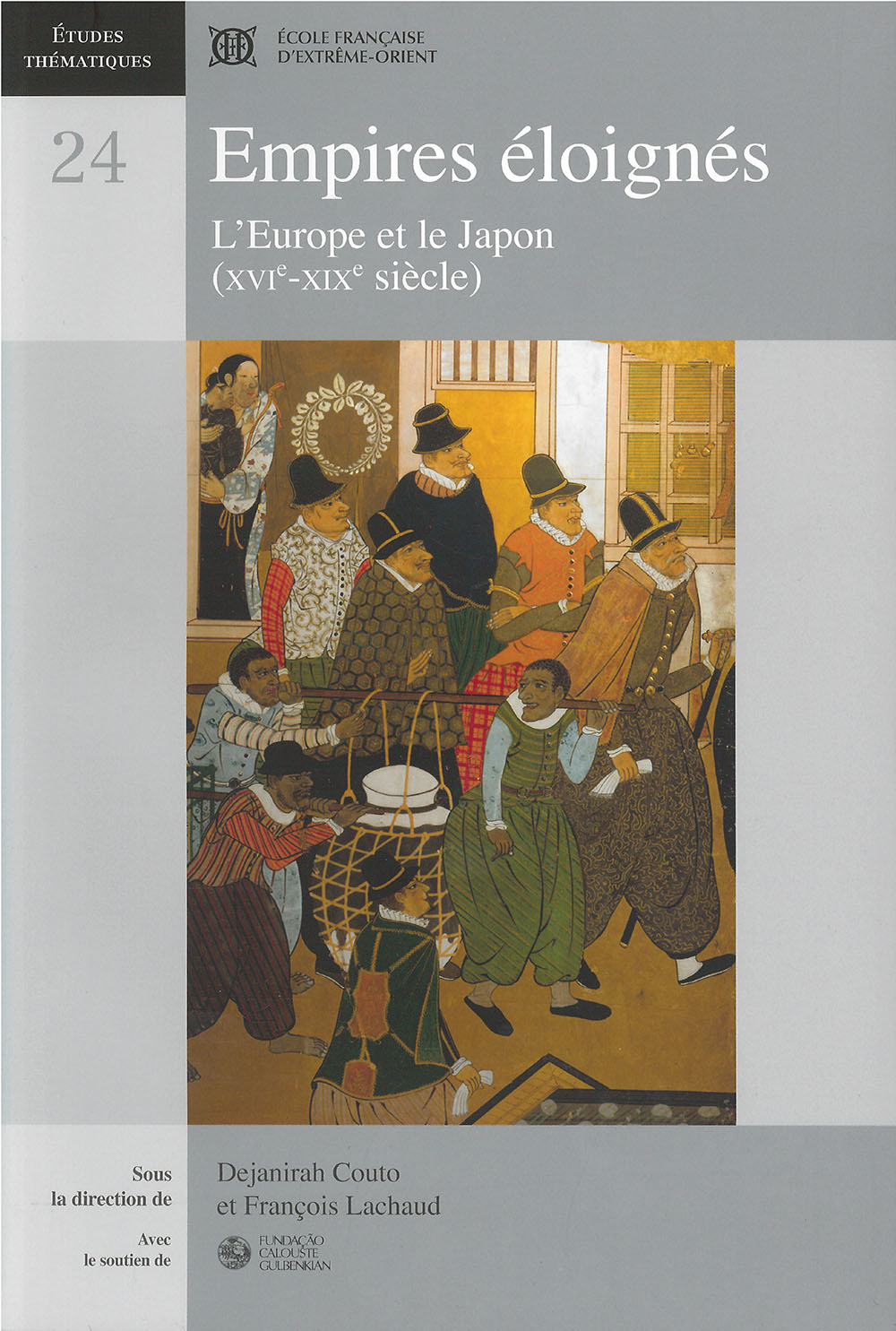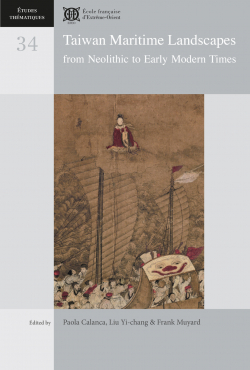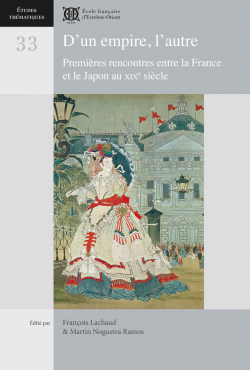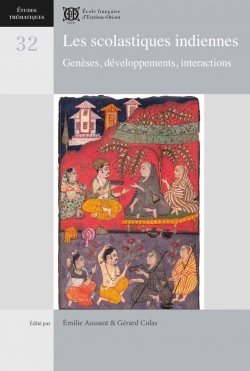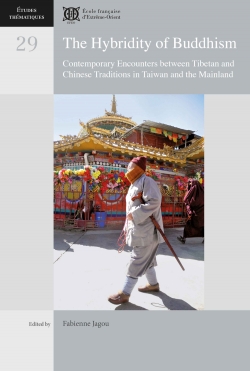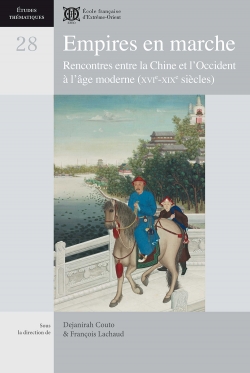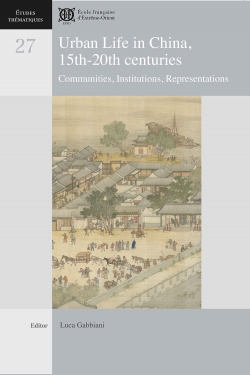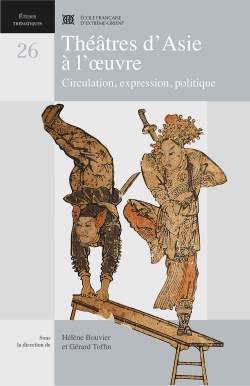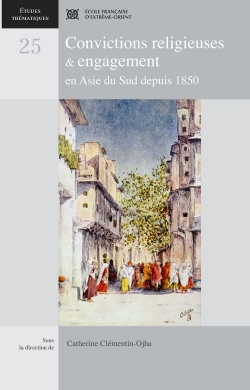The catalog of EFEO Publications includes works on a wide range of disciplines in the humanities and social sciences (archaeology, history, anthropology, literature, philology, etc.), centered on Asia, from India to Japan.
These publications address both specialists, and a wider public interested in Asian civilizations and societies.
Empires éloignés. L'Europe et le Japon (XVIe-XIXe siècle)
Collection : Études thématiques
Collection's number: 24
Editor: Couto (Dejanirah), Lachaud (François)
Edition: EFEO
Publication date: 2010
Status : Available
50,00 €
ISBN-13 : 9782855391182
ISSN : 1269-8067
Width : 18,5 cm
Height : 27,5 cm
Weight : 0,9 kg
Number of pages : 304
Distributor : EFEO Diffusion
Geography : Japan
Language : French, English
Place : Paris
Support : Papier
Abstract
The three centuries between the arrival of the first Westerners in Japan in 1543 and the reopening of the country in 1853 point at the same time to the final stop of the first globalization achieved by the Portuguese and Spanish empires and to the encounter between cultures that had lived in a blissful ignorance of each other. The conflict between Christianity and Buddhism, but also shifting national policies and the rapid eviction of Western foreigners (apart from a small community of Dutch people) fostered a new version of connected histories represented in books, in works of art, in popular fictions and in religious controversies. Today it is no longer possible to analyze these three hundred years of dialogue and hostility, of successes and failures when Japan redefined its place in East Asia while relying only the nearsightedness of Japanese studies and on researches about Western empires and their colonial expansion in Asia. By a constant interplay of inverted mirrors, participants on both sides of the divide marking those first cultural encounters started to represent the ‘Other’, thereby making a first step towards self-definition. Contributions reflect this variety of methods but also the diversity of the people who used them. In this volume, Japanese and Western specialists in the field of cultural exchange bring back to life the whole array of these early modern diplomacies based on reality and on imagination, of these cultural mediations that were to leave indelible traces.
Table of contents
About the collection
Études thématiques
Authors who would like to submit drafts are asked to follow these instructions, download : Feuille de style [PDF 602 Ko].
About the editor
Lachaud (François)
François Lachaud is Professor of Japanese studies at the French School of Asian Studies (EFEO) since 2000. His interests include art history, Japanese Buddhism, and diplomatic and cultural exchanges in East Asia during the premodern and modern eras (17th–19th century). He is the author of La Jeune fille et la Mort (IHEJ, 2006), Le Vieil Homme qui vendait du thé (Cerf, 2010), and editor of several edited volumes: Légitimités, légitimations : la construction de l’autorité au Japon (EFEO, 2005); Distant Empires: Europe and Japan (16th–19th Centuries) (EFEO, 2010); Jizō, divinité japonaise (Talmart, 2012); and Empires on the Move: Encounters between China and the West in the Early Modern Era (16th–19th Centuries) (EFEO 2017). He has been involved in the organisation of several exhibitions, including Yôkai : bestiaire du fantastique japonais (Paris, MCJP, 2005), Destination Japon : sur les pas de Guimet et Claudel (Lyon, Muséum, 2005), Kiyochika: Master of the Night (Washington DC, Arthur M. Sackler Gallery, 2014), and Kunihiko Moriguchi : vers un ordre caché (Paris, MCJP, 2016).
Related books
Études thématiques
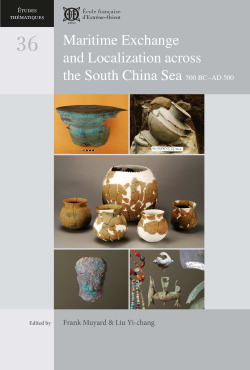
Maritime Exchange and Localization across the South China Sea
Bérénice BELLINA, Aude FAVEREAU, LÂM Thị Mỹ Dung, YAMAGATA Mariko, Frank MUYARD, LIU Yi-chang, Krisztina KINGA HOPPÁL, Stephen CHIA MING SOON, SHIUNG Chung-ching, MIYAMA Emily, CHAO Chin-yung, CHUNG Kuo-feng, WANG Kuan-Wen, Caroline JACKSON, LIU Jiun-Yu
40,00 €
2025
• Available
Études thématiques
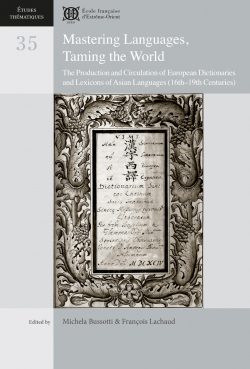
Mastering Languages, Taming the World
Michela BUSSOTTI, François LACHAUD, Dejanirah COUTO, Rui Manuel LOUREIRO, KISHIMOTO Emi, ŌSHIMA Mikio, Henning KLÖTER, Hans-Jörg DÖHLA, María Teresa GONZÁLEZ LINAJE, YANG Huiling, Mariarosaria GIANNINOTO, Eugenio MENEGON, Mårten SÖDERBLOM SAARELA, YOSHIKAWA Masayuki
40,00 €
2023
• Available
Études thématiques
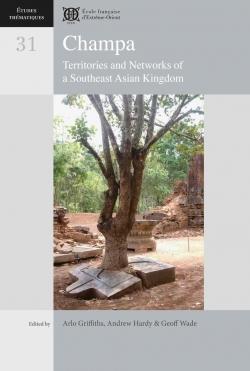
Champa
Andrew HARDY, Arlo GRIFFITHS, Pierre BAPTISTE, Amandine LEPOUTRE, William A. SOUTHWORTH, Geoff WADE, LÂM Thị Mỹ Dung, YAMAGATA Mariko, NGUYỄN Kim Dung, BÙI Chí Hoàng, Federico BAROCCO, NGUYỄN Tiến Đông, Thérèse GUYOT-BECKER, Anton O. ZAKHAROV, Mara LANDONI, John K. WHITMORE, Marc BRUNELLE, Stephen A. MURPHY, TRẦN Kỳ Phương, Parul Pandya DHAR
40,00 €
2019
• Available
Études thématiques
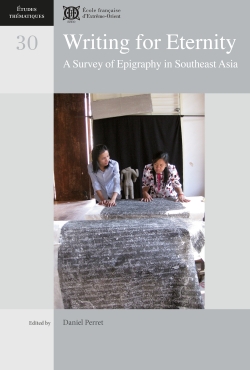
Writing for Eternity
Daniel PERRET, Claude GUILLOT, Ludvik KALUS, Philippe PAPIN, Claudine SALMON , Jacques P. LEIDER, Michel LORRILLARD, Arlo GRIFFITHS, Dominique SOUTIF, Julia ESTEVE, Peter SKILLING, Hadi SIDOMULYO, Tilman FRASCH, Kyaw Minn HTIN, Marek BUCHMANN, Christian BAUER, Titi Surti NASTITI, Roderick ORLINA
40,00 €
2018
• Available
